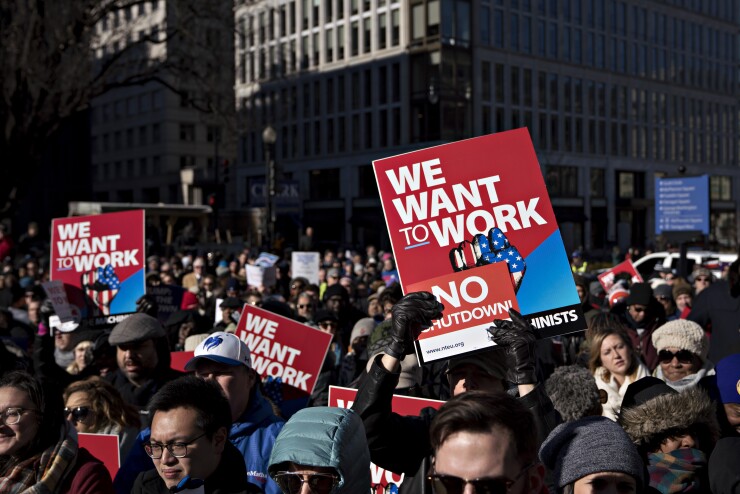The shaky start to this year’s filing season should be addressed by extending the filing deadline for one month, according to Andrew Moylan, executive vice president of the National Taxpayers Union Foundation. “The timing of the government shutdown, combined with its historic length, left the IRS in a scramble to work through a significant backlog of preparations for a busy filing season,” he said. “Despite their efforts, the shutdown left taxpayers and practitioners without adequate support to determine legal obligations, as service centers went unstaffed and many forms were not yet finalized.”
Noting the IRS’s historic struggles with outdated technology, and last year’s Tax Day system crash, Moylan said, “This is an agency that already has troubles, and combined with the first filing season under a new system with dozens of new forms means that they were already in a difficult position. Add to that the 35-day shutdown where close to half the staff was furloughed, and the result was a very limited ability for taxpayers to receive assistance.”
“Taking an operationally challenged agency such as this and effectively forcing it to do four months of work in three months’ time is a recipe for disaster,” he said. “The results thus far have been exactly what one might expect, raising serious questions about whether or not Congress or the administration ought to act to extend the filing deadline.”
Moylan cited a just-completed NTUF study, released on March 7, that draws upon data from the Taxpayer Advocate Service, which explains the extent of service disruptions in its taxpayer support operations. It also points to lesser-known issues, like interest accruing on certain pending U.S. Tax Court matters, to highlight the need for Congress to work with the IRS to provide for a comprehensive extension of tax filing deadlines.
While some have suggested that taxpayers can deal with filing season disruptions by simply filing for extensions, Moylan is unconvinced: “There are some issues that aren’t solved by taxpayers filing for extensions. For example, levy notices have a 21-day reply period, and that clock was ticking during the shutdown. Even if taxpayers wanted to resolve those issues, they couldn’t. If they wanted to rescind levies or make a payment plan, allowing for additional extensions would be of no help.”

“Also, a lot of forms that had to be redrafted [after the Tax Cuts and Jobs Act] had to be redrafted, and they were still in draft form at the time the shutdown started. There are other issues such as cases pending in Tax Court. The point is to protect taxpayers from harm associated with the shutdown through no fault of their own, and it’s more than just waiving late payment penalties,” he added.
In a March 8, 2019, letter to IRS Commissioner Chuck Rettig, the American Bar Association Tax Section gave its comments on the impact of the shutdown. To mitigate the effects of a future shutdown, it suggested, among other things, that the service suspend the issuance of most automated notices for the duration of the shutdown.
“The service continued to issue automated notices during the shutdown,” it wrote. “This increased the need for taxpayers or their representatives to interact with the service during and immediately after the shutdown. Some automated notices, particularly those sent by the Automated Collection System, require taxpayers to contact the service immediately to avoid severe consequences, such as a lien or levy.”
There has been talk among some members of Congress about extending the filing season, according to Moylan.
“Two Democrat members of Congressman — Sean Casten and Lauren Underwood, both of Illinois — have indicated interest in the issue,” he said. “And Sen. Ron Wyden is already on record requesting additional relief for underpayment penalties. So there is some hope."





